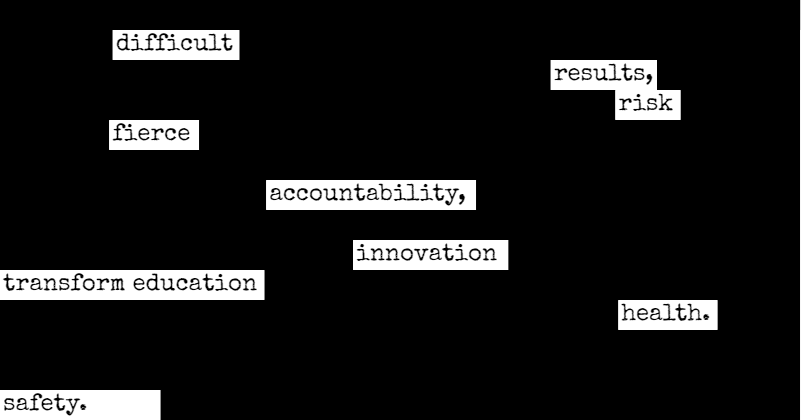by Jen Hoyer
Looking over the CUNY budget request and financial statements was a good reminder of the incongruities between desire and reality in financial bureaucracy. The CUNY budget request reads like a piece of marketing (which it is). The financial statements, on the flip side, were prepared by accountants as a financial audit. Budget reporting lines don’t match the categories set out in the request. Requests are carefully outlined according to categories that are used to lobby politicians (and curry favor with the public) but that ultimately might not matter to the folks who approve spending.
What this highlights for me is that a funder (in this case, the state) might agree with proposed spending lines — even budget lines that fall into seemingly idealistic or value-laden categories — but that same funder somehow doesn’t have the power to make those same spending allocations what matters in reporting. The auditor’s report has to look for bad debt, depreciation, change in assets and liabilities, etc. If the funder themselves can’t change the system of reporting to match up with how they agreed spending should be prioritized, who does? Who, ultimately, has the power to decide what *matters* in how money is spent — or, have we let “the system” have the power?
I won’t write much here about the grant budgets but would love to talk in class about some key issues these examples raise for me, such as:
- what are the types of literacy required to fill out different types of funding requests / grant budgets, and how does that limit who can even ask for money?
- how do technological systems dictate the way funding requests need to be presented — technological systems that funders might buy into as a “simple” tool for managing grant requests, but that those same funders ultimately can’t control very much when it comes to usability. (for example.)
And finally, because this week’s readings felt…dry…I turned to my favorite tool for being creative with texts — the blackout poetry maker. Here is the blackout poetry I made from the risk statement on page 19 of CUNY’s financial statements.



